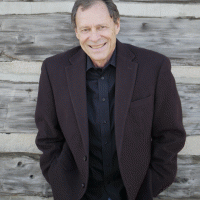
Henry "Chip" Arnold
Henry O. “Chip” Arnold III did not have to prepare an audition for his first role for the stage. He just had to be the right age (5 years old), work for free, and be the son of the producer, Henry O. II. It was a production of the Greek tragedy, “Medea,” and Henry O. III played the younger son of Jason and Medea. The biggest challenge for him was not to flee in terror when the actor who played Jason discovered the lifeless, ketchup-drenched bodies of his two sons murdered by his wife, Medea, and burst into paroxysms of blood-curdling screams. Jumping up and running off stage, hands clasped to his ears, would have turned tragedy into comedy.
Mr. Arnold’s theatrical career did not skyrocket after that. It was not until 1970 when Henry O. II got him a role in a production of “Man of La Mancha” that he realized he might have some natural talent that could be turned into a career. Until that moment Mr. Arnold had bought into the idea that he “would never amount to anything,” as was often spoken by scolding teachers and disapproving adults who kept their kids from socializing with him. Who could blame them? In high school, he was invited to seek his education elsewhere after the gambling pool he put together for the 1967 World Series had been busted by the librarian, he flunked out of college in his first year due to the influences of the ‘60’s counter-culture, followed by the loss of a series of jobs either through boredom or incompetence. The only job he held for any length of time was that of a paperboy from age eleven to fourteen. In those four years delivering the morning and evening papers on his bicycle, he was exposed to a variety of characters and experiences that began to shape his view of the world and awaken his sense of artistic expression.
In addition to being “raised right” by good parents, two seminal moments in his life have made all the difference: his commitment of faith in Jesus Christ and his marriage to Kay. And while he has tried the patience and tested the mercy and forgiveness of both parties over the decades, he has no regrets and no intention of turning back.
A story well told is what keeps Mr. Arnold pursuing his duel careers as an actor and an author.
